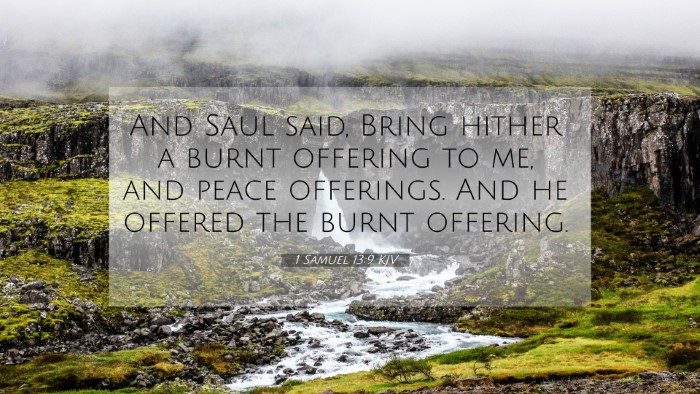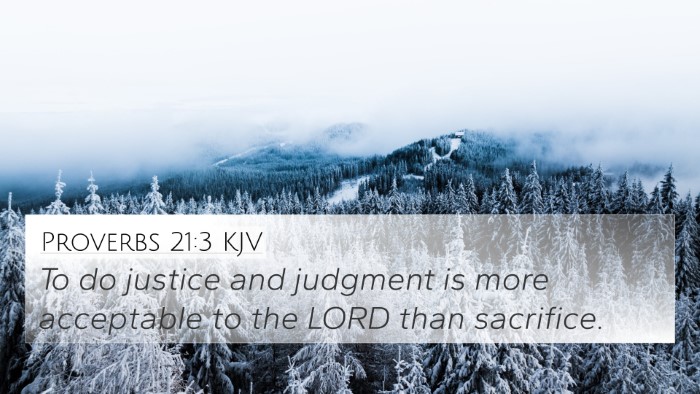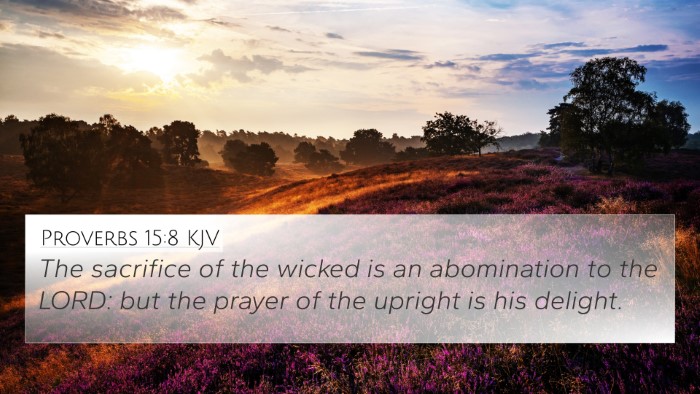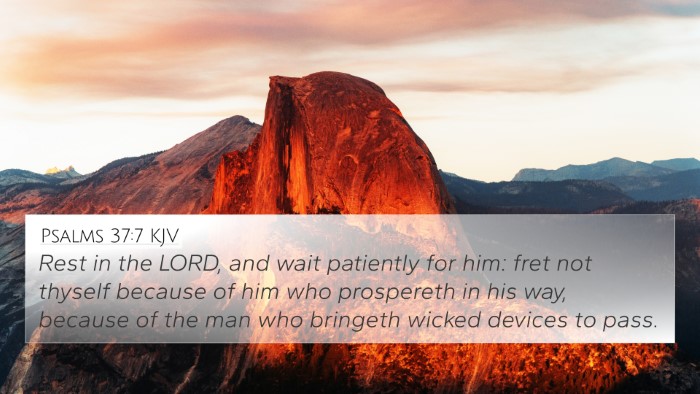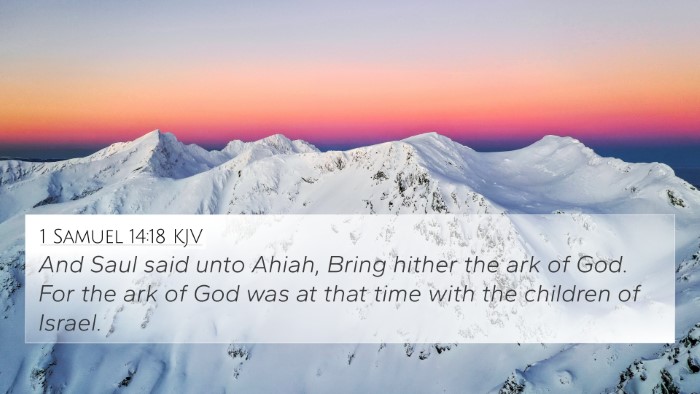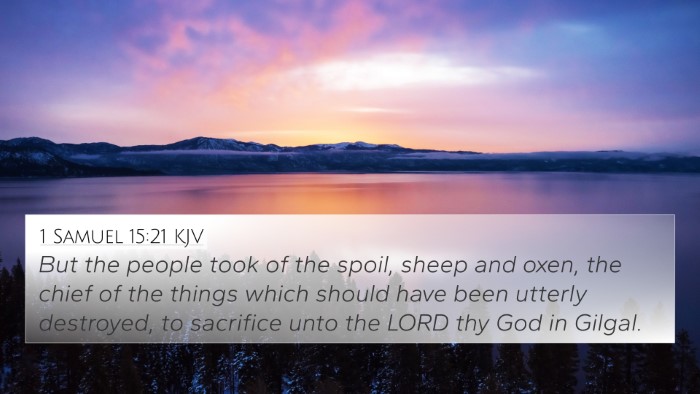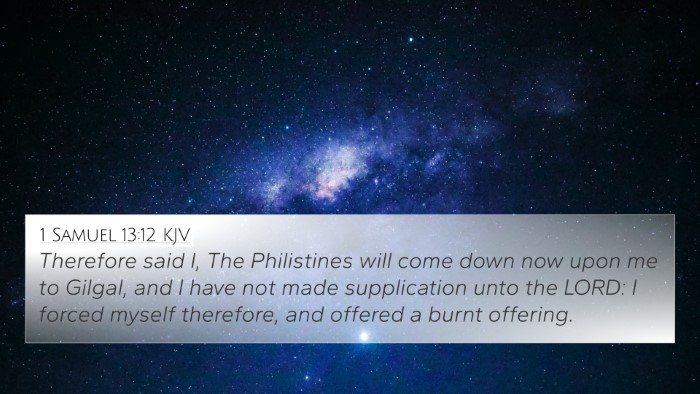Understanding 1 Samuel 13:9
Verse: "So Saul said, 'Bring a burnt offering and peace offerings here to me.' And he offered the burnt offering." (1 Samuel 13:9)
This verse captures a significant moment in the life of King Saul, illustrating themes of leadership, obedience, and the consequences of acting outside God's will.
Key Insights
- Context of the Verse: This event takes place during a time of crisis for Israel as they face the Philistine threat. Saul's impatience leads him to take on priestly duties.
- Saul's Actions: By offering the burnt offering, Saul steps outside his role as king and violates God's commandments, which were reserved for the prophet or priest.
- Consequences: This act demonstrates Saul's lack of faith and obedience, which ultimately leads to judgment and the rejection of his kingship by God.
Commentary Analysis
Based on public domain commentaries, here are combined insights from authors like Matthew Henry, Albert Barnes, and Adam Clarke:
Matthew Henry's Commentary
Matthew Henry emphasizes the peril of Saul's presumptuous actions. He argues that Saul's rush to perform the offering signifies a disconnect from God's timing and authority. By not waiting for Samuel, Saul exhibits a lack of faith, which is critical in biblical leadership.
Albert Barnes' Notes
Albert Barnes notes the important distinction between the roles of king and priest in Israel. He suggests that Saul's inappropriate act results from fear and the pressure of the imminent threat, which ultimately reflects his character's flaws as a leader.
Adam Clarke's Commentary
Clarke presents Saul's act as a quintessential example of human folly, where personal judgement is placed over divine command. He asserts that the urgency of the situation led Saul to override the divinely appointed order, which underscores the critical importance of obedience to God's commands.
Bible Cross-References
To deepen understanding, here are key Bible verses related to 1 Samuel 13:9, highlighting connections between biblical texts:
- 1 Samuel 10:8 - The instructions given to Saul about waiting for Samuel before offering sacrifices.
- Exodus 30:10 - The law regarding the sin offering and its requirements.
- 1 Samuel 2:13-17 - Eli's sons misusing priestly duties serves as a parallel to Saul's actions.
- 1 Samuel 15:22 - Samuel's later declaration on obedience being better than sacrifice.
- James 1:4 - The theme of patience contrasted with Saul's impatient action.
- Hebrews 5:4 - The divine order of who is permitted to offer sacrifices in Israel.
- Isaiah 64:6 - The futility of works versus true obedience and faithfulness to God.
Thematic Bible Verse Connections
This verse connects to broader themes in scripture, such as:
- Obedience: A recurring biblical theme that underscores the importance of following God's commands (Deuteronomy 28:1).
- Leadership: The qualities of godly leadership and the dangers of pride and self-reliance (Proverbs 16:18).
- Faith and Trust: The necessity of relying on God’s timing and plans (Psalm 27:14).
Comparative Bible Verse Analysis
Engaging in a comparative analysis of this verse with others enhances understanding:
- 1 Chronicles 10:13-14 - Provides insight into God's rejection of Saul for disobedience.
- Matthew 26:41 - The call for spiritual vigilance aligns with Saul's situation.
- Romans 12:1 - The call to present our bodies as living sacrifices relates to the significance of genuine offerings to God.
Final Thoughts
1 Samuel 13:9 serves not just as a historical account but as a rich source for theological reflection, providing valuable lessons on faith, obedience, and the nature of divine authority. The interconnectedness of scripture through cross-referencing enhances our understanding and application of biblical principles.


